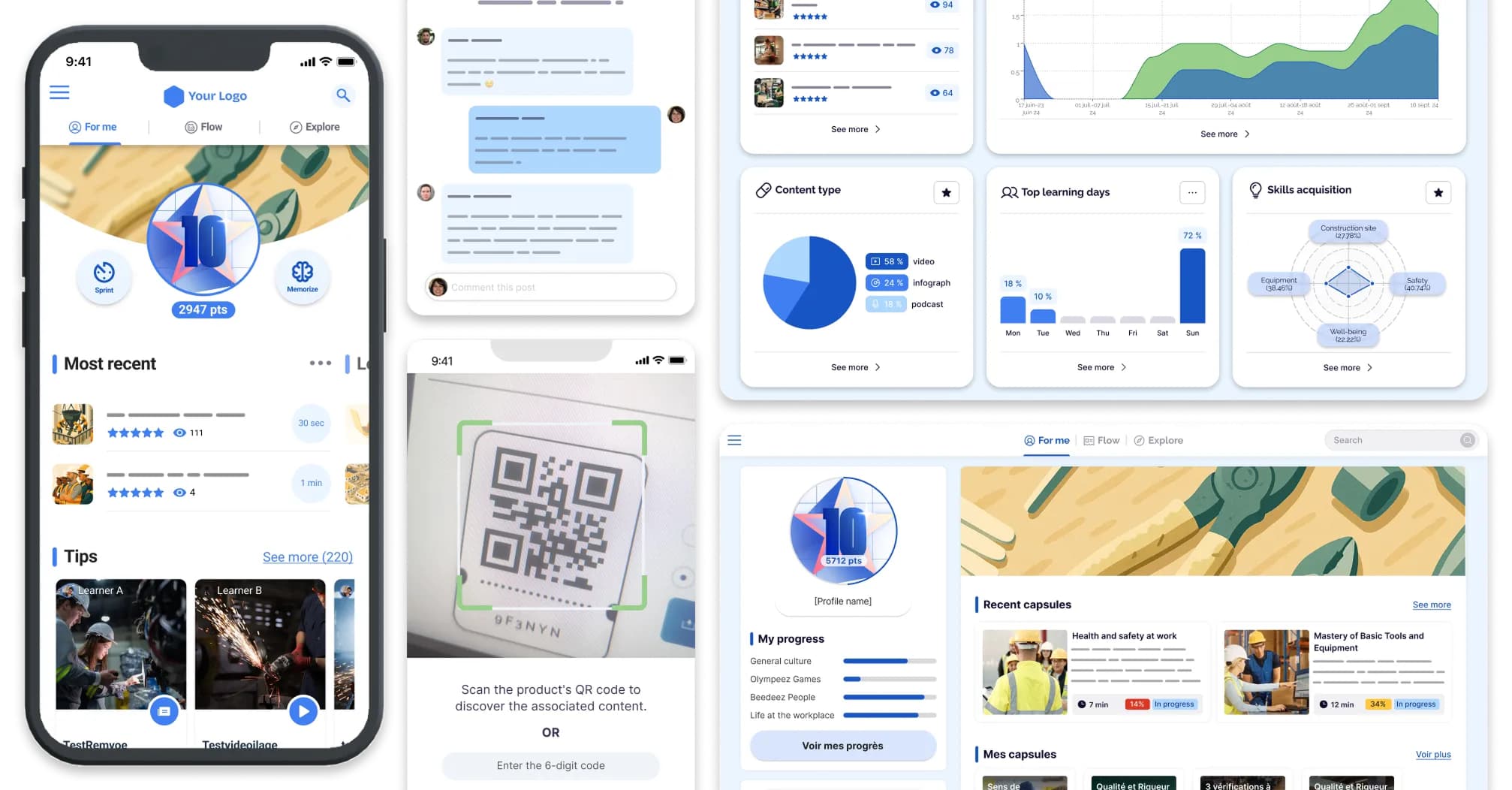Choosing a platform that anticipates the uses of tomorrow is a lever for efficiency and sustainability.
One good LMS is no longer a simple training catalog, but a truly evolving learning environment, designed to adapt in real time to user needs and business goals.
Decryption
Faced with the multiplication of LMS offers, it is becoming essential to distinguish fashion trends from real technological advances. In 2025, businesses expect their LMS to be intuitive, customizable, connected and useful in achieving their training goals. This results in:
- total compatibility with mobile uses;
- AI tools to automate and optimize content creation;
- analytical monitoring to manage training performance;
- collaborative experiences that stimulate engagement.
💡 In addition, there are increasing requirements for security, interoperability, and customization. The LMS must be easily integrated into the company's digital ecosystem (SIRH, CRM, business tools), while offering maximum flexibility in the administration of courses.
→ A good LMS is no longer judged only by its modules, but to its ability to evolve with its users and their environment. It must anticipate uses, support internal transformations and be part of a logic of continuous improvement.
What are the expectations for an LMS in 2025?
In 2025, an LMS must be mobile-first, permanently connected to mobile uses. Integrating AI to personalize journeys, analyze data, and predict needs has become a norm.
From the user's point of view, expects a smooth experience, inspired by the best consumer websites : intuitive navigation, adapted content, social interactions. Accessibility, ergonomics and responsiveness have become prerequisites.
Finally, training managers require management based on data.. The LMS should make it possible to measure ROI, identify the most effective training courses, detect skills gaps, and adjust investments accordingly, in a precise and documented manner.
The objective? Make training a sustainable performance driver, in line with HR strategy and business priorities.
The essential features you need
Some modules and functions have become essential to meet the needs of businesses and learners alike.
- Generation AI content : To save time on module design, adapt content to profiles and facilitate their updating.
- Mentoring/coaching features : To promote human support in career paths and strengthen the retention of skills.
- Automated compliance monitoring : Mandatory in certain sectors (health, finance, industry), it guarantees perfect traceability and facilitates audits.
- Advanced and customizable reporting : To finely control the key indicators, from the completion rate to the business impacts.
- Integrated social learning : Forums, comments, challenges... to create interaction and capitalize on collective intelligence.
What are the e-learning trends to watch closely in 2025?
Innovation continues to transform uses. Here are a few promising areas to watch closely:
- Educational chatbots : To answer questions in real time, recommend resources, and empower learners. Increasingly integrated into platforms, they are inspired by consumer uses to streamline the user experience and relieve training teams.
- Adaptive courses on the fly : AI adjusts content and learning rhythms based on the profile, performance, and preferences of each user. This dynamic personalization makes it possible to optimize engagement and retention, while accelerating the achievement of educational goals.
- Augmented/virtual reality : Still little used, but strategic for technical or immersive training (maintenance, safety, professional actions). These immersive formats make it possible to simulate complex environments and to train without risks, with higher memory rates than traditional methods.
- Internal micro-certifications : Linked to targeted skills, they value what has been learned and are integrated into a logic of internal mobility. In addition, they reinforce the internal recognition of knowledge and contribute to the retention of employees by offering concrete prospects for development.
Checklist of features to require in an LMS
What training managers want from an LMS
- 62% of HR directors plan to invest in LMS integrating AI by the end of 2025 (source: Fosway Group)
- 74% consider measuring training ROI to be their main LMS evaluation criterion
- Mobile uses already represent more than 55% of connections to LMS platforms in companies with more than 500 employees
- 1 HR director out of 2 indicates that the personalization of the learning journey is a priority issue in 2025
- 68% believe that the LMS should become a driver of HR performance and not a simple distribution tool




